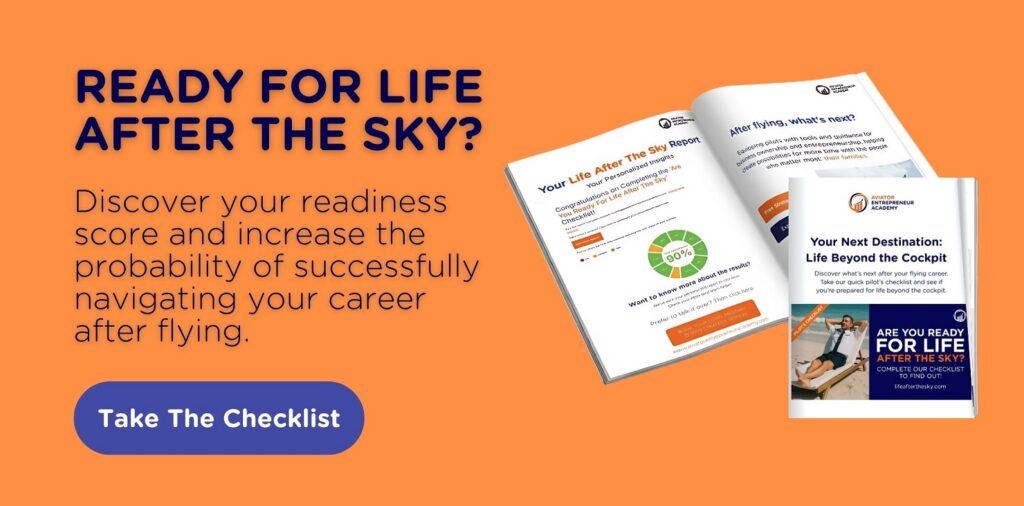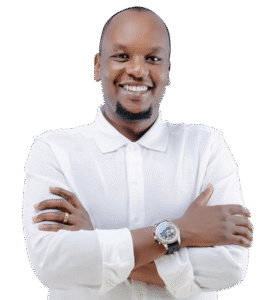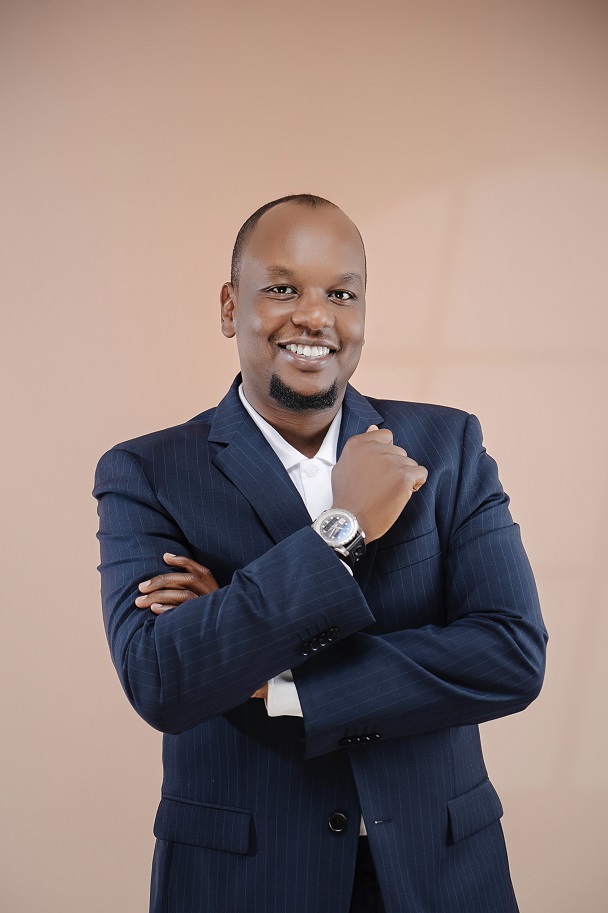Many pilots begin their entrepreneurial journey after retirement, and there’s absolutely nothing wrong with that. In fact, it’s something to be proud of. Not everyone has the courage to take a completely new path when most are looking to slow down.
The only question is: What if I’m not as ready as I think?
It’s not meant to spark doubt. If anything, it’s a safeguard. Because unchecked confidence is just another form of lemon juice (a concept we’ll dive into later).
It feels like certainty, but it can blur our judgment when clarity matters most.
Below what follows might just reveal the blind spot we didn’t know we had.
Key Takeaways
- Don’t let confidence wear a disguise: The McArthur story reminds us that certainty without clarity is dangerous. Just because we believe we’re prepared doesn’t mean we actually are.
- Check your cognitive blind spots: The Dunning-Kruger effect shows that when we lack skill in a domain, we’re also likely blind to how little we know. Before stepping into a new field, humility is more valuable than experience.
- Our flight hours don’t auto-convert: Flying 20,000 hours doesn’t make us qualified to run a business. Entrepreneurship is a new path with new systems. For this, we’ll need new checklists, new training, and new mental models.
- Ask the hard questions now: Before you write your next chapter take three minutes for self-reflection by using the AEA readiness scorecard. Uncover your next steps with confidence.

The Lemon Juice Effect: The Stories We Tell Ourselves
“But I wore the juice!”
That’s what McArthur Wheeler said after robbing two Pittsburgh banks in broad daylight. Covered in lemon juice, he genuinely believed it would make him invisible to the security cameras. (He had even “tested” it, probably mistaking a bad Polaroid for proof of his ingenious disguise.)
However, when the police showed him the footage, there he was, as clear as day. The issue wasn’t the lemon juice; it was Wheeler’s profound sense of misguided confidence and a baffling belief in a flawed premise.
While it may sound funny, let’s admit we all have our “lemon juice moments” in life. Instances where our conviction in an unexamined belief blinds us to obvious realities.
Now, as an accomplished pilot, standing on the edge of the next bold chapter, say into entrepreneurship: Are we unconsciously wearing lemon juice?
Perhaps it’s the voice, “I will figure it out when I get there; I always do.”
Or, “I have flown 20,000 hours; I can handle anything life throws at me.
Maybe it’s, “I’ve read a few business books, I am good.”
Whatever the thought is, pause. Challenge it, because confidence is only powerful when rooted in reality, not in illusion.
Understanding the Dunning-Kruger Effect
The story of McArthur Wheeler’s lemon juice folly didn’t end with his arrest. Instead, this anecdotal intrigue led to a formal scientific inquiry into the cognitive bias we now know as the Dunning-Kruger effect.
The research revealed a fascinating paradox: Individuals with low ability in a given domain often deeply overestimate their competence. This is because they lack the knowledge to recognize their own errors. Conversely, highly competent individuals tend to underestimate their relative ability, assuming tasks easy for them must be easy for others.
The entire point of the Dunning-Kruger Effect is not about intelligence; it’s about domain-specific ability and humility. As Patrick Mullane explains, both aviation and entrepreneurship require creativity, the ability to deal with uncertainty, and discipline. Yet despite these similarities, success in a new domain needs expertise that might be different from your established competence.
Competence ≠ Transferable Confidence
Here is the often-overlooked irony for accomplished pilots. The skills that make us excel in the cockpit can also lead to unexpected challenges. Our incredible precision, quick decisions, and expertise in airborne operations are second to none.
However, those strengths are from a world defined by structure, rules, and predictability. Entrepreneurship isn’t like that. If we are stepping into this unfamiliar territory, we need to be prepared to master new domains.
We will need to learn business strategy, financial management, and sales psychology just as diligently as we learned our aircraft’s systems. This shift from operating within a system to building one from scratch is the new required “type rating”.
What Overconfidence Costs (That We Can’t See Yet)
While the immediate impact of misplaced confidence isn’t always noticeable, its costs accumulate like unseen turbulence on a smooth flight. These are not just minor inconveniences, but major setbacks that can take a toll on our spirit and resources.
When we begin our business journey wearing ‘lemon juice’, much of the time we invest goes into chasing the wrong goals or building in the wrong direction.
After some time, when things don’t go as expected, momentum begins to fade. What once felt like progress now feels like resistance. We start questioning our directions, decisions, and eventually ourselves.
The hardest part is realizing that our confidence was built on assumptions, not preparation. However, by the time cracks start to show, we’ve already invested significant time, energy, and emotion.
So, before we dive deeper, let’s take a moment and ask ourselves:
“What if I’m just one question away from seeing what I’ve been missing?”
Choose The Tools That Protects Us From Blind Spots
Once we’ve asked the right question and started to see what we’ve been missing, the next step is equipping ourselves with the right tools.
In aviation, we’d never fly without a checklist, training, or structured procedure. These tools aren’t formalities, but lifesaving systems designed to prevent blind spots, for experienced pilots and even the most beginner pilots. So why would entrepreneurship be any different?
Checklists, mentorship, and structured guidance serve the same purpose in business. They help us begin our business journey by providing directions, which reduces guesswork and ensures we’re not flying blind in an unfamiliar territory.
The Pre-Flight Checklist for Life After The Sky
Our deep discipline and ability to learn from thousands of hours in the cockpit are our greatest strengths. Now, we can utilize these skills not just with ambition, but with a clear purpose as we begin our next chapter. Gaining clarity now is our best defense against future chaos.
But are we truly ready to figure out our future beyond aviation?
Take just three minutes to find out how prepared you really are. This quick quiz, designed as a self-check, not a test, can show if you are actually ready or if there are hidden vulnerabilities to address.
Invitation to join our FREE Strategy Session
Most pilots are one honest conversation away from clarity. This is that conversation.
Complete our “Life After the Sky” checklist, then join me for a FREE 15-minute “Strategy Session” via Zoom.
This session has been created for pilots who want to take ownership of what comes next.
Those who want action, not just to talk about it.
In just 15 minutes, we’ll:
- Review your checklist results
- Identify the one obstacle holding back your reinvention
Translate your checklist results into a clear starting point
Start your pre-flight assessment for the next chapter of your journey by Booking your free strategy session here!



